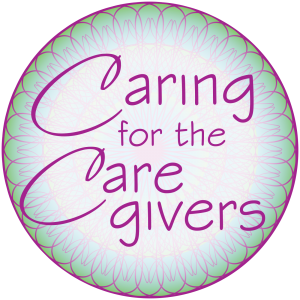One of the beautiful things about the New Year is that it traditionally makes us feel like we can start over, improve on what was not working, and gives us an opportunity of “letting go” of what went wrong during the past year. As 2018 was approaching a few weeks ago, I reflected on all of the things I just mentioned. I listed the people, things, events, and work that served, or didn’t serve me in 2017.

{Amy Jaffe with Saza in Chiangmai, Thailand – 2017}
I made New Year’s resolutions last year, as I do every year, and I had to force myself to recognize that I can’t remember one year that I stuck with my resolutions religiously. I gave many a good try, but I have not been fully committed after the excitement fades. Last year was another one of those years.
Here were a few of my 2017 resolutions:
- Develop better communication skills, and be clearer about my own needs.
- Develop a regular yoga and meditation practice.
- Be more aware of my body weight, diet, and exercise. Plan a diet that fits in with my life and body. Lose weight, and exercise on a regular basis.
Do any of these look familiar to you?
These are some common resolutions that I hear quite often, and I jumped on the bandwagon last year on all of these. At the end of the year I actually celebrated one of the resolutions regarding my weight, diet, and exercise. I lost over 40 pounds last year that had been creeping up on me the past 6 years, and I feel great! I’m on the treadmill at least 5 days a week, and my diet is mostly gluten free, vegetables, a few grains, and vegetarian. I have kept my weight off all year and grateful to feel healthy and whole.
Now, for the “not so celebrated” resolutions….
What kind of feelings do YOU go through when you reflect on your failed commitments? Do you feel like a failure? Do you believe you shouldn’t try again because you just know you’ll fail again? My feelings are similar, AND the feeling of fear rises up when I want to try them again. How can I be better at these commitments? Why are these resolutions so important to me? And how can they become habits? I am sitting with all of these questions and feelings, and ready to stand up and move forward with the desire to keep trying.
Brené Brown is one of my teachers in life, and two of her books, “Daring Greatly” and “Braving the Wilderness” are my new bibles. At the end of every year I beat myself up with guilt because I did NOT stay committed to my New Year’s resolutions. I am a perfectionist at heart and mind, and when I am not perfect …. the guilt and anxiety take a hold of me.
“Understanding the difference between healthy striving and perfectionism is critical to laying down the shield and picking up your life. Research shows that perfectionism hampers success. In fact, it’s often the path to depression, anxiety, addiction, and life paralysis.”
― Brené Brown, The Gifts of Imperfection: Let Go of Who You Think You’re Supposed to Be and Embrace Who You Are
Where do I go from here?
I am setting my intentions and resolutions again this year! My intention is to follow Brené Brown’s advice and focus on healthy striving in my life. I am one of the hosts of Indrani’s Light Foundation’s “Caring for the Caregivers” podcast. Indrani Goradia, Jeremie Miller and I publish a bi-monthly podcast to support our Caregivers who work as staff members in domestic violence shelters. (Available on iTunes) In our newest episode for 2018, the three of us discussed how we can reflect on our current self-care practices, and plan for new ones as an important step in being intentional about our self-care. We also talked about what practices worked for us in 2017, and which ones need improvement in 2018.
I am excited about starting this New Year free from guilt and shame, and acknowledging that intentions and striving for a healthier life is what my New Year’s Resolution will be!
I would love to know if this blog and our podcast episodes have been helpful for you this first month of 2018. What have you learned so far? Have you freed yourself of guilt, and discovered your New Year’s Resolutions?
With gratitude,
Amy
Amy Jaffe | Director of Education & Outreach
Indrani’s Light Foundation


 If you aren’t setting clear boundaries, and communicating your expectations, you are going to find yourself in conflict. Indrani shares a personal coaching message about setting and dealing with expectations at work and at home.
If you aren’t setting clear boundaries, and communicating your expectations, you are going to find yourself in conflict. Indrani shares a personal coaching message about setting and dealing with expectations at work and at home.